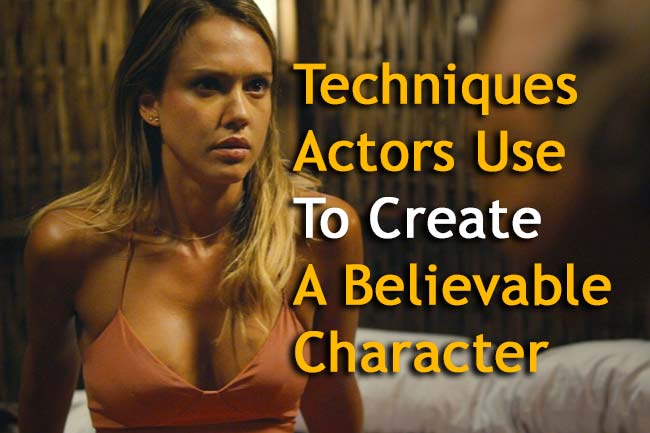
You need to take some time practicing the below steps and your achievement might vary depending on your personal skills and how serious you are to take acting as a career path.
Table of Contents
- How To Practice Conveying Real Emotions When Acting?
- How Body Language Helps You Convey Real Emotions When Acting?
- CONCLUSION
How To Practice Conveying Real Emotions When Acting?
To practice developing real emotions when acting you may follow the below steps:
- Develop The Right Mentality
- Understand The Character
- Practice Being The Character
- Focus On The Gesture & Posture
- Link Emotions With Facial Expressions
Develop The Right Mentality
When reading the script that you want to practice acting in, try learning by yourself to look at the bigger picture, in other words, try to develop the right mentality of realizing the whole script story and understanding what is your role all about and how each character reacts and how you should feel while being in the story.
Understand The Character
When practicing acting a scene you should behave like someone else unlike yourself, it is like wearing a masquerade of totally another person and then taking it off when acting stops, either you are gifted with this skill set or you can develop it by practicing over and over again.
To practice it you need to ask yourself questions like how the character should react to this situation. how the character should think when he became in that situation? how the character should look like when he is reacting with his voice tone, feeling, posture, any special body movement,s and any special habit the character should do in a specific situation…
You should consider also the overall character’s personality as sometimes the character doesn’t have that much complex personality but could be a normal personality with some exceptions, so in this case, you could also practice acting like yourself if the character seems to be close to your personality, many famous actors and actresses are using this technique, for instance, Julia Roberts.
Remember, depending on the age, sex, and background of your character, they may react differently so you should consider studying your character deeply.
Practice Being The Character
This is a critical step that you really need to focus on while practicing acting in a character’s role, you need to realize the character’s situation and understand it deeply from the previous point mentioned above, then act as if you are the character itself, to do so, follow the below steps:
- Having instant feedback about your practicing could be done by practicing in front of a mirror.
- Improve your acting voice tone, dialect, body language, and posture.
- Look at yourself in the mirror and see what are the weak points that make you not so believable being the character or not realistic.
- Criticize your acting and try to be more realistic without overdoing it.
Focus On The Gesture & Posture
Focusing on your character’s gestures and posture should definitely add to your acting to be more believable, so when practicing acting try immersing yourself in the story you are acting by building up the character’s fears and/or other feelings, going that much into details should expedite your acting skills to the next level over practice; Practicing the gesture and posture of the character should feel realistic to the audience.
Link Emotions With Facial Expressions
In order to deliver the right feelings and emotions to your audience, you need to show them with facial expressions.
If your act is theatrical, then you should go extreme with your expressions along with your voice projection but if you are acting in front of a camera you should not be overdoing it especially when the shot is a close-up shot.
So presenting emotions with facial expressions is a key to realistic acting which any professional actor/actress master, when you practice acting in front of a mirror over and over you will have the ability to be inside the character’s personality naturally, for this regard I am sharing with you below a great lesson in two parts from New York Acting Coach John Windsor-Cunningham who has worked with theaters from California’s Old Globe to the Royal National Theater explaining to you and advise you how you should involve into the character’s personality and situations in a practical lesson.
How To Act Realistically – PART 1 (Important for you to complete watching parts 1 & 2)
How To Act Realistically – PART 2 (Important for you to complete watching parts 1 & 2)
How Body Language Helps You Convey Real Emotions When Acting?
Body language is the other half of a successful act with emotions considering that emotions with facial expressions are the first half, and this is because the body language will not only assist in giving you the right gesture to support the feelings and impressions that you are acting but will also make your acting achieve perfections in terms of how easy it is to convey emotions.
What I mean by that is for instance if your act is to show sadness or depression with your dialogue, it will be so difficult for you to develop that sad emotion when looking upwards towards the sky and opening your hands widely upwards, and even if you could develop some face expressions they will look fake because you aren’t believing in it while your body is in this position, on the other hand, if you put your both hands into your pockets and lay down your head while looking towards the ground, the depression mood will come to you naturally which makes it easier for you to look more realistic.
The reason why body language helps you convey real emotions when acting is that conveying emotions isn’t just a mental process but a physical one as well, body language is associated with your mind by nature. So in order to master the body language to convey real emotions, you can practice the pantomime kind of acting.
Remember, Charlie Chaplin was creating full films and delivering the messages in films that were totally silent, as well as Mr. Beans.
CONCLUSION
Conveying emotion to your acting is not a simple skill but once you master it, you will have your acting skills move to the next level because not anyone is born with those skills, but the good news is those skills can be learned over the practice. Showing realistic and convincing acting evolves not only the facial expressions but includes body language, dialect, character’s personality, character’s situation in the act, voice tone, character’s age, and condition … etc, in other words, you need really to work on your skills by following the above points to expedite your acting career path.

